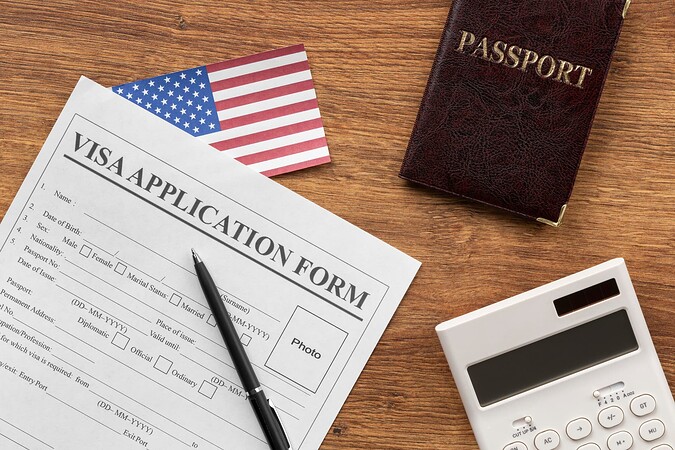The U.S. Citizenship and Immigration Services (USCIS) has finally dropped guidance on the controversial $100,000 H-1B visa fee announced under a September 2025 presidential proclamation. For months, employers and international graduates have been unsure who actually needs to pay it, until now.
Who Pays the $100,000 Fee?
According to the October 2025 USCIS guidance, the hefty fee only applies to new H-1B petitions filed on or after September 21, 2025, and only for individuals:
- Outside the U.S. without a valid H-1B visa.
- Whose petition requests consular processing or pre-flight inspection.
Good news: If you’re already in the U.S. on an F-1 visa and switching to H-1B (a change of status), the $100,000 fee does not apply.
Why This Matters for Indian Students
Most international graduates, especially from India, rely on the H-1B visa to stay and work in the U.S. after completing their studies. With 73% of full-time grad students in electrical and computer engineering being international, this rule directly impacts thousands of career paths.
The new USCIS guidance brings a mix of relief and concern:
- Good news for current students in the U.S., You now have clarity that the $100,000 H-1B fee won’t apply if you’re switching from an F-1 student visa to an H-1B work visa. This means less financial stress and smoother transitions for those already studying or working in the U.S.
- Tougher for future applicants, For Indian students still prepping to study in the U.S. with hopes of working there later, this policy might complicate things. The fee makes it costlier and riskier for employers to hire new international talent from abroad, possibly shrinking opportunities down the line.
In short, the scale is tipping, current international students breathe easier, while future ones may have to face a more complex and expensive path to their American dream.
Legal Drama in Progress
Not everyone’s thrilled. The U.S. Chamber of Commerce and several organizations have filed lawsuits challenging the new fee, calling it unreasonable and damaging to global talent mobility. Until the legal dust settles, both students and employers are watching closely, because what’s at stake isn’t just money, it’s the future of skilled migration to the U.S.
Quick Takeaways
- The $100K H-1B fee does not affect students shifting from F-1 to H-1B.
- It only applies to new applications for those outside the U.S.
- Legal challenges could still change or pause the rule.
Conclusion
The new $100,000 H-1B visa fee marks a major shift in U.S. immigration policy, one that rewards clarity for current students but adds hurdles for future dreamers. While those already in the U.S. can breathe a sigh of relief, aspiring students and employers abroad now face a more uncertain and expensive hiring landscape. The coming months, and the outcome of ongoing lawsuits, will decide how this truly reshapes America’s global talent pipeline.
Planning to study, work, or settle in the U.S.? Stay informed with GD Connect. Here students, alumni, and experts share real-time updates on visa and immigration policies, career opportunities abroad, and first-hand experiences from international students.
